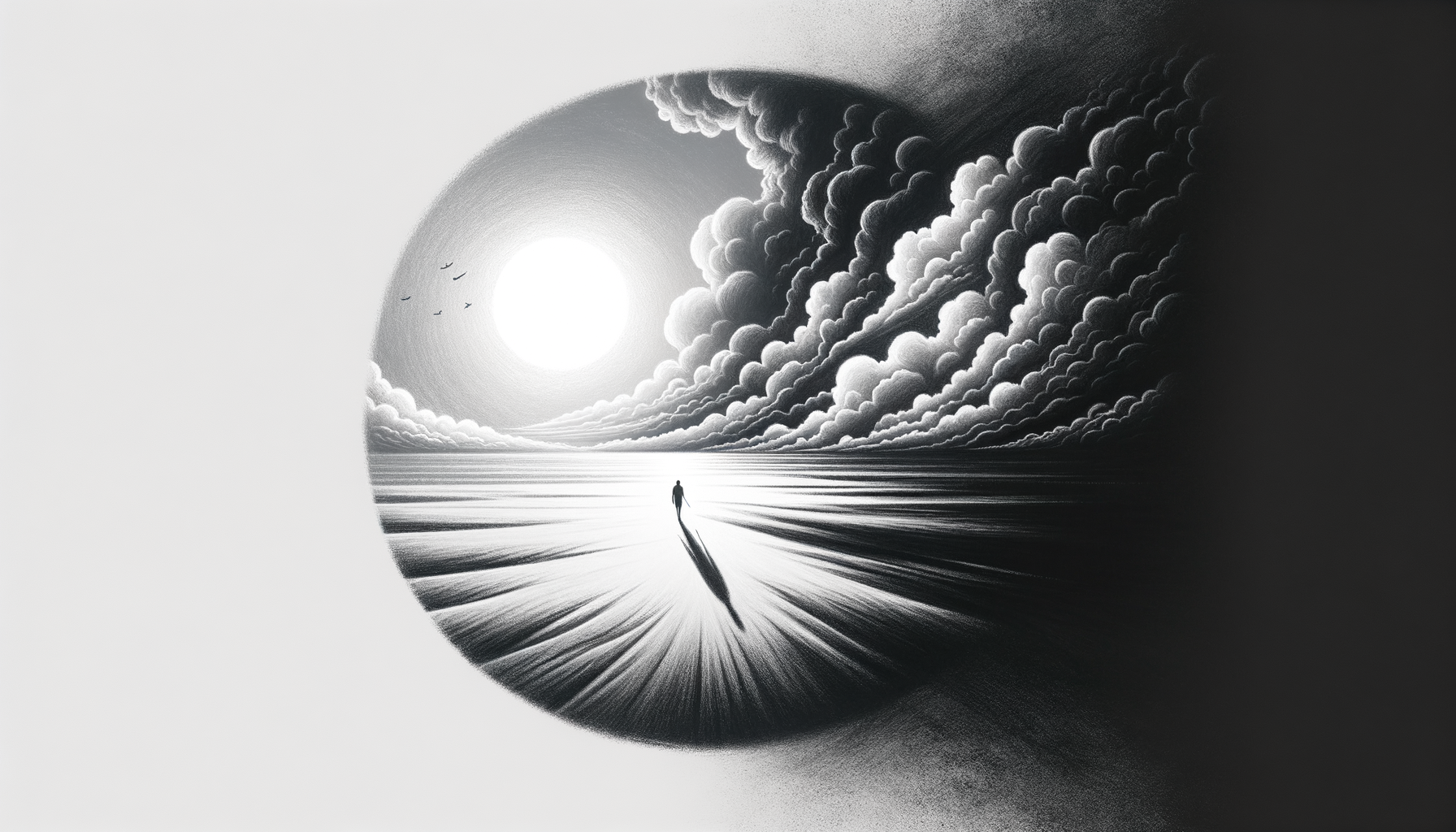A Secret Struggle in the Heart of the West
The Secret I Kept From (Almost) Everyone
Here’s the thing about growing up in big-sky country: the land teaches you resilience. Montana winters don’t care if you’re tired or overwhelmed, and ranch life waits for no one. I grew up in a place that demanded grit, a place where even the horses seemed to have an opinion about whether you could hack it. So when life stumbles into your path like a stray calf, bucking all over the place, you saddle up and deal with it.
Or at least, that’s what I told myself when I spent years silently grappling with a secret struggle. A deeply unromantic and entirely infuriating fear of rejection wove itself into my life, particularly in my relationships. Looking back, this fear ruled me more than any windswept mountain range ever could. It wasn’t something that came out of nowhere. It had roots—messy, tangled roots—a combination of childhood experiences, an overly sensitive default setting, and failures in love that hit me right in my gut.
But unlike a scraped knee earned after tumbling off a green-broke horse, this pain was something I didn’t share, even with those closest to me. Instead, I hid it. I brushed it off with humor or walled it in behind the emotional equivalent of towering lodgepole pines. It wasn’t until years later, after countless internal battles, that I learned how to face it—and maybe help someone reading this do the same.
How My Fear of Rejection Snuck Into My Life
Before you assume I spent my late teens and twenties singing dramatic Taylor Swift breakup songs atop a mountaintop, let me clarify: this wasn’t just about dating. Sure, romantic rejection stung the sharpest. It’s hard to forget the sting of a letter or email that begins with “you’re a wonderful person, but…” But rejection also seeped into friendships, work interactions, and even moments when I wanted to speak up for myself. I could trace the breadcrumb trail back to smaller rejections. The middle school crush who suddenly decided he’d rather sit next to someone else on the field trip bus. The friendship that fizzled out with no explanation.
For me, rejection didn’t feel like an event. It felt like a verdict. It told me I wasn’t enough, even if my logical brain knew better. And if you’ve ever grown up on a ranch, you learn to pick your battles wisely, because when a horse bolts or a hailstorm ruins your haying season, you can’t always repair the damage. That’s what rejection felt like—a storm I couldn’t outrun, one that convinced me it was better to stay in my emotional corral than to risk baring my whole, unfiltered self.
I became the queen of safe choices. Go ahead—engrave it on my metaphorical tiara. I dated people who I felt certain wouldn’t hurt me because we never got close enough to try. I avoided emotional risks like skimming river rapids in a flimsy canoe. And, perhaps most heartbreakingly, I built a version of myself that felt tolerable, softer around the edges, safe for public consumption.
The Quiet Realization That Changed Everything
One day, several years ago, I found myself in the middle of an argument with a man I’d been seeing for six months. We were standing in a grocery store parking lot, snow swirling around us as our breath froze in midair. The argument itself wasn’t seismic; I think it started because I forgot to grab his favorite bag of chips. But in the middle of it, he stopped, looked me squarely in the eyes, and said, “Why don’t you just tell me what you’re really feeling? What are you scared of?”
What was I scared of? In that moment, I felt like a deer being stared down by a mountain lion. I didn’t have words. Instead, I stood there frozen, snow piling up in my hair like punctuation marks to my silence. He wasn’t trying to fight. He wasn’t angry. He just wanted the truth.
It was in that moment that I realized the obvious: I wasn’t hiding my fear of rejection as well as I thought. Not only that, but it was making me speak and act from a place of fear rather than honesty. Fear had snuck into every conversation, every interaction, subtly shaping how I presented myself.
Later that night, in the quiet of my cabin, I wrote a letter to myself. It was a letter I never intended to share, just a place to spill everything I’d bottled. I wrote about my fear, naming it like a man staring down a rattlesnake. I wrote out every painful moment, every doubt, and every way I’d avoided what scared me.
Learning to Move Past It
Spoiler alert: one emotional letter scribbled in the glow of a wood stove didn’t magically fix my life. But it was the first tiny step toward doing the work. Here are a few things I learned along the way—not only in that relationship (which, to no one’s surprise, didn’t last much longer) but in so many other areas of life:
-
Rejection Happens to Everyone
From the most confident cowboy singing karaoke at the local bar to the friend who seems like they’ve got their life tied up with a bow, rejection doesn’t discriminate. If connection means risking rejection, then experiencing it is proof of having been brave enough to try. -
It’s Better to Be Authentic Than Perfect
As it turns out, the “acceptable” version of myself wasn’t fooling anyone. It’s exhausting to keep up a performance, even one as subtle as never saying when you disagree or always cracking jokes to dodge real conversations. The hard truth? Not everyone will like the real you, but the people who matter will appreciate your courage to show up anyway. -
Feel the Fear, Do It Anyway
There’s no way to fully void fear from the human condition. But instead of letting it lead, what if you simply acknowledge it? Now, I do it all the time: I tell myself, “Okay, fear, you’re here. But we’re still doing this.” It can make voicing a hard truth or asking someone out for coffee feel like an accomplishment, even if the answer isn’t what you hoped. -
Rejection Doesn’t Define You—Your Response Does
Yes, rejection stings. But with enough distance, I can look back on some of my biggest romantic and professional faceplants and realize they weren’t life-enders—they were redirections. Many even prepared me for opportunities I couldn’t have imagined at the time.
My Hard-Won Takeaway
If you’ve ever battled your own secret fear—whether it’s rejection, judgment, or something else entirely—remember this: you are not alone. Fear has a funny way of convincing us that we’re the only ones struggling while everyone else seems to glide through life unscathed. But the truth is, no one escapes life without their own version of a snowy parking lot showdown.
Admitting my fear didn’t take it away, but it loosened its grip. I started to lead with courage instead of avoiding risk, leaning into the crux of connection: vulnerability. Whether I’m building relationships or writing stories for you, dear reader, I’ve learned that being real is always worth it—even when it’s terrifying.
So today, take a step toward owning your truth. Let life—messy, unpredictable, and wonderful—keep surprising you. You’ll find that even out in the wilds of fear, you are capable of so much more than you think.




















